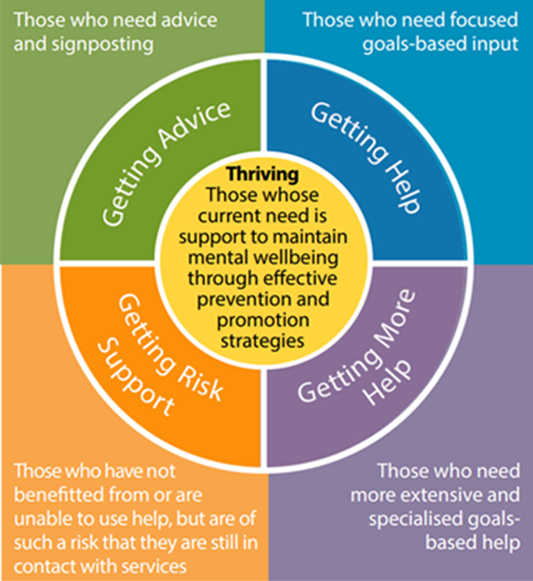We are continuing to listen to children and young people, their parents and carers, and people who work with our services (like schools, GPs, sports clubs, and youth groups) to see how we can develop and improve our services.
Our approach is underpinned by a new service delivery model called the THRIVE Framework for System Change (Wolpert et el., 2019.) Its main emphasis is on giving children and young people a central voice in decisions about their care. We are also starting to develop a commonly used language across children’s services.
Here’s an animation about our approach:
The main principles of THRIVE
We want our children, young people, and their families to thrive. Our alliance partners are working together to advise, help and support this.
The main principles of the THRIVE Framework are:
- common language (non-jargonistic) to support a shared understanding among all those involved
- needs-led plans, not based on diagnosis or severity
- shared decision-making with children, young people, their families and carers at the core
- proactive prevention and promotion to enable the whole community to support mental health and wellbeing
- partnership working between different organisations with varied roles
- outcome-informed, with clear and transparent goals, measures of progress and action plans
- reducing stigma and ensuring mental health and wellbeing is everyone’s business
- accessibility to timely advice, help and risk support in locations where children, young people and their families are and in a way that best suits them
THRIVE conceptualises the mental health and wellbeing needs of children, young people and families in terms of five different needs-based groupings:
- those who need advice and signposting to information and support – we call this ‘Getting Advice’
- those who need focused, goals-based input (such as overcoming anxiety in social settings) – we call this ‘Getting Help’
- those who need more extensive and specialised goals-based help (such as struggling with eating disorders) – we call this ‘Getting More Help’
- those who have been unable to use help, or for whom help has not resolved their difficulties, but are still of real concern to professionals - we call this ‘Getting Risk Support’
- as well as those who will benefit from prevention and promotion strategies that will help them maintain their own mental wellbeing. We call this ‘Thriving’.
